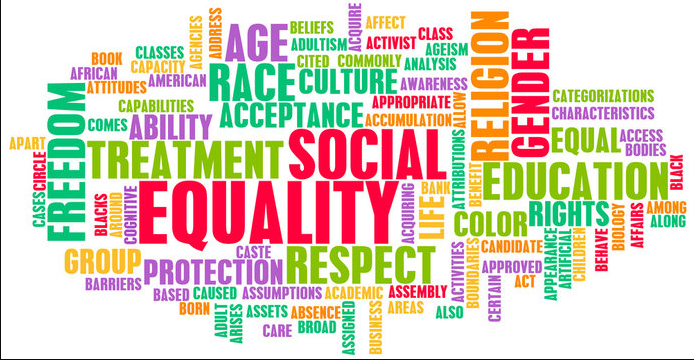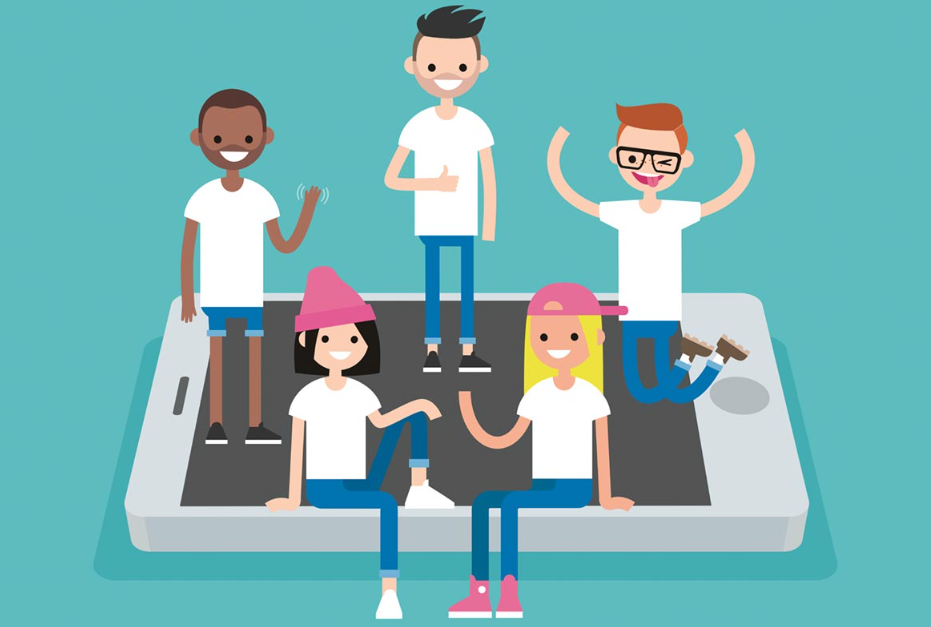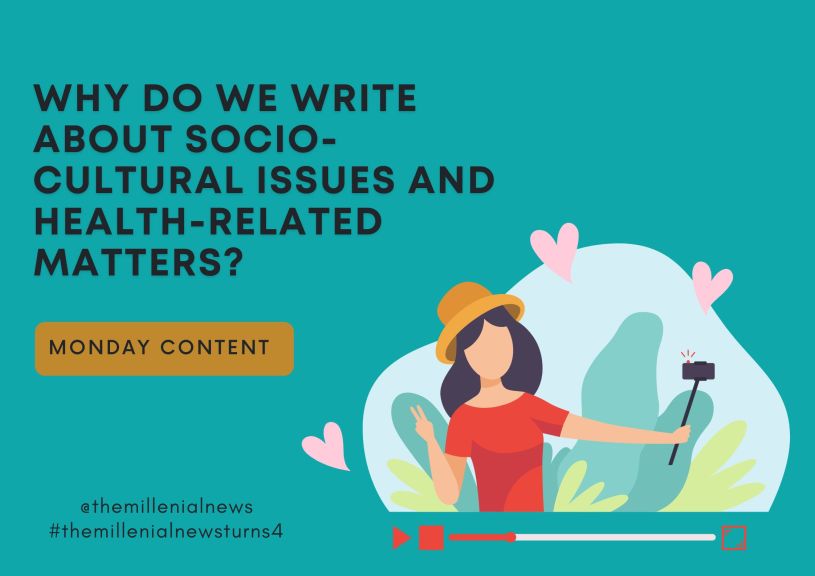Hello Millenial Readers,
Time surely flies! This week, we are excited to celebrate our anniversary with our faithful readers. In our journey of creating expressive, informative, and credible content, we commemorate the 4 years since The Millenial News was born. In honour of our anniversary week today, we shall discuss why we raise awareness about socio-cultural issues and health among Gen Zs and millennials.

As it is our norm, on Mondays we post content based on two categories: social and cultural issues and health-related issues. In April, we talked about the rise of Korean culture among Gen Zs in Kenya; then earlier last month, we highlighted the health effects brought about by the disruptive floods that hit our country. Last week on Monday, we discussed Jhamby Koikai’s illness, which was a combination of social and health issues. The list continues, bringing us to today’s topic, why write about socio-cultural and health issues?
Socio-Cultural Issues and Gen Zs
Eighty per cent of Kenya’s population is made up of youth, with the median age being 19 years, a report by the Kenya Youth Survey says. There is no doubt that Gen Zs in Kenya are emerging to be particularly passionate about social and cultural issues in society today. The once marginalised age bracket has creeped out of the shadows to air their voices and be heard.
By socio-cultural issues, we mean a wide array of cultural and societal influences that impact the way we think, reason, and behave. These include the patterns, traditions, and beliefs that are followed by a people of a particular geographical area.

Here are some factors that inform some of the socio-cultural issues faced by our society in Kenya today:
- Gender relations:
This refers to the changing dynamics between men and women depending on their socially constructed understandings of their roles. Earlier this year, femicide was a hot topic, due to the heightened relations between men and women.
- Cultural hegemony:
The dominance of a particular culture or ideology over others leads to the neglect and marginalisation of others. Cultural hegemony dims diversity, leading to disparities and inequalities.
- Social media and lifestyle
Platforms within social media provide a medium of interaction where people all over the world share and exchange ideas. With social media being ‘social’ it influences many thought processes and attitudes, therefore, a clash of cultures and beliefs is bound to occur. Social media also tends to dictate lifestyle, again to influence as people share and exchange ideas and information, making the world take the form of a global village.
- Religion and Education
These are major parts of society today since they both highlight the fundamentals of what is right and wrong. Socio-cultural issues sprout up immediately, and individuals begin to go against the status quo.
- Urbanisation
In simple terms, urbanisation is the rapid increase of people living in towns rather than rural areas. Gen Z and the millennial way of life are more dominant in urban areas than in rural areas.
- Habits and attitudes
Our beliefs, values, and attitudes inform our behaviours. As a result, the behaviours that we pick up become daily routines, which make up systems and structures in society. Socio-cultural issues may emerge from these daily routines.
It is crucial to acknowledge that socio-cultural issues are diverse and tend to fluctuate with time.
Why Is It Important?
We engage Gen Zs with socio-cultural issues due to the following reasons:
- The socio-cultural problems we face as a country are meant to present opportunities for innovation. Our content provokes thought systems towards a solution-oriented mindset.
- It is said that ignorance is bliss, but on the contrary, ignorance is a thief that steals our hope and future. We believe that knowledge truly is power, for when a person is well informed, he or she stands in a position to make better decisions in life.
- Public participation is essential, especially for Gen Zs and millennials. When we raise awareness about socio-cultural issues, we allow our readers to engage with matters rising in society and empathise.
- Our content targets Gen Zs and millennials to allow them to feel included and represented in socio-cultural conversations. This is to discourage apathy and social exclusion.
Health and Wellness
Have you ever been so sick that you became nostalgic about the time you had good health but took it for granted? I’m pretty sure we’ve all faced something similar at some point, whether it was a flu or malaria. Even so, the World Health Organisation reminds us that “health is a state of complete physical, mental, and social well-being and not merely the absence of disease or infirmity.”

The importance of promoting health and wellness among Gen Zs.
- To bring a sense of fulfilment to life
Taking care of our physical, mental, and spiritual health is a big achievement for Gen Zs. Life can be busy and tiring, but the best way to heal and rest is by prioritising our health. It is no wonder that the first four letters in the word ‘health’ spell out ‘heal’.
- To create awareness
As much as saying prevention is better than cure has become cliché, it stands to be the gospel truth. Raising public health awareness is said to be the most effective way to prevent the spread of infirmities.
- To evoke happy emotions among Gen Zs
All kinds of Illnesses come packaged in sorrows and worries. A sickly atmosphere breeds negativity; however, a healthy body brings a happy mind and vice-versa.
- To extend life expectancy among Gen Zs
Research repeatedly shows that people who embrace a healthy lifestyle live longer and experience a higher quality of life. It is said we are what we eat, watch, and listen to. All this affects our health in one way or another.
- To save money
Living a healthy lifestyle saves more money than we actually realize. When we fail to take care of our bodies, a lot more money goes into our medication. Therefore, Gen Zs should consider the consequences of choosing to invest in what is cheap yet unhealthy.
- It shows that we love our family and friends.
When we’re unwell, those we love end up hurting more than we do, for they care deeply for our wellbeing. Taking care of our health is also taking care of those who are around us. It goes beyond ourselves to those who matter most.

Final Thoughts
Socio-cultural issues as well as matters of health and wellness remain integral parts of our society today. Even so, in a digital world where information is easily accessible, misinformation and disinformation continue to be a threat. The Millenial News creates content that is expressive, informative, and credible for Gen Zs and millennials to empower them to make this world a better place.
Hope to see you again next Monday!
Cynthia ❤❤❤

